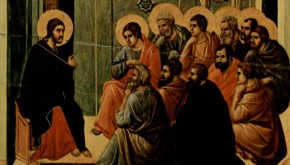Staying together

When I first arrived in Chicago, the Church Federation of Greater Chicago was a visible and important part of the life of the city, with a broadcast ministry, hunger programs and advocacy efforts in civil rights, education and public policy. An annual banquet was held in a hotel ballroom, with all the seats at every table taken and greetings brought by the mayor.
Today, although the World Council of Churches and the National Council of Churches continue to be faithful expressions of unity, local conciliar efforts are mostly dormant. The only time I see brothers and sisters from other denominations is at the annual Mayor's Prayer Breakfast and the Martin Luther King Day celebration.
What happened? For one thing, many denominations have been consumed by internal conflicts. One issue causing conflict for Presbyterians and others has been ordination standards with regard to gays and lesbians. After arguing for more than three decades, the Presbyterian Church (U.S.A.) has decided to alter the rule that has prohibited gays from being ordained unless they vowed to be chastely single. The new policy allows local congregations and presbyteries the possibility of deciding that a gay candidate is qualified to be a pastor. Some presbyteries and congregations will make use of this option, and some will not.





